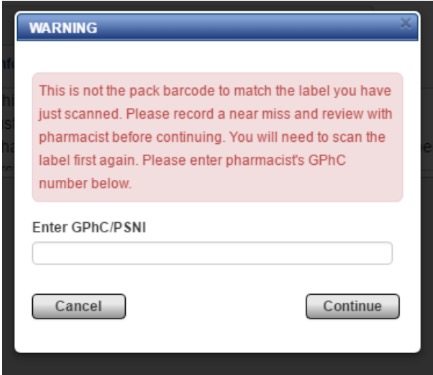Empowering you to meet regulatory and best practice requirements
Patient Safety First |

This month’s Patient Safety Champions letter focuses on the patient safety benefit of prescription counselling and seeing the patient behind the prescription. These important aspects of how we care for our patients link into the current module of the Pharmacy Leadership Program, which explores how leaders support their teams to deliver person-centred care.
Please consider how you use the HUG model of customer care to support and enable patient counselling. You should also use this month’s activity, which will be led by your Patient Safety Champion, to reflect on how you see the patient behind the prescription, and how you can use this to promote patient safety. As part of this activity, please share with your Patient Safety Champion any insights, or ideas for SMART-ER actions, you may have to support patient safety in your pharmacy.
Innovation: Assisted Due Date Dispensing (ADDD) roll out |
We will soon be rolling out the new Assisted Due Date Dispensing (ADDD) technology to a further 562 stores across England, Scotland and Wales. ADDD is currently live in 193 stores across the South of England and has now supported the dispensing of more than one and a half million items. Initial insights suggest that ADDD delivers operational safety which exceeds that of our traditional dispensing systems. In addition, ADDD also supports capacity release for our pharmacists, enabling an uplift in services, such as the NHS New Medicines Service (NMS), helping to better meet our patients’ needs and improve health outcomes.
Abi, pharmacist in Store 2117 (Calne), states that “Since starting using ADDD, it has enabled me to have so much more time for patients – dealing with queries, providing advice or services, including NMS and GPCPCS. Following the initial ‘firewall’, the pharmacy team has embraced the new process and all team members are confident in the system. It has really supported patient safety, as the ADDD process identifies mistakes made before the bagging stage of dispensing occurs.”
There are a number of safety features in Columbus that support ADDD. These features are designed to alert pharmacy team members when the system detects an unexpected event.
From our understanding of human behaviour, we recognise ‘pop-up fatigue’ can occur, whereby we may overlook a ‘pop-up’ message, not taking the time to read the message if we perceive to know its content or subconsciously think it is not important.
‘WARNING’ alerts in ADDD have been designed in RED and often will require a GPhC or PSNI number to be added so that they cannot be easily closed and disregarded. An example of a ‘WARNING’ alert is shown here:
As we introduce more digital innovation into community pharmacy, we will have further opportunities to utilise technology to drive safety benefits – to get these benefits, we must use any innovation as intended. Please ensure that ‘pop-up fatigue’ is discussed as part of your team’s patient safety conversations. It is key that all pharmacy team members understand the importance of undertaking the required action specified in the ‘pop-up’ including, where instructed, alerting the pharmacist.

